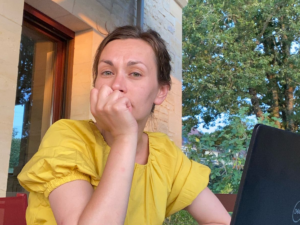Autism is a difference, not an impairment
I am autistic and was officially diagnosed about a year and a half ago when I was training to be a counsellor. We were covering neurodiversity in a therapy module at the time and I really identified with some of the characteristics of being autistic. When I put myself up for an assessment and received my diagnosis, everything seemed to fall into place.
Scientific knowledge on neurodiversity and public understanding of it are quite limited. We are all still learning. Neuroscience has a lot to uncover about the human brain in general, neurotypical or otherwise. One thing we can be certain of is that autism is a spectrum. As autistic people, we have our own unique combinations of strengths and weaknesses, our own unique experiences of the world. There are some common themes, which allow for the autistic neurotype to be identified in the first place. Historically, these commonalities have been seen in a negative way, such as the phrase “restricted behaviours”, which is often used to describe areas of intense interest and strong preference for routine. Today, academic research and accounts of lived experience are more accessible than ever before, and a new neurodiversity-affirmative perspective on autism is emerging.
Prior to joining 6point6, I worked in a variety of roles that required a lot of socialising – something I found hard because I thought I was not good with people. After several years, I was ready to find a career that aligned with my strengths. I have the ability to both see the big picture and understand the details. Combined with my creative thinking and strong focus, these attributes have given me an advantage in my data career. It is sometimes thought that neurodivergence is an additional hurdle but for some roles it can be a real asset. I can lose myself in a structured task for hours on end, and there is no need for close supervision either. As long as the task is clear and I have the tools to get it done, I can be relied upon to deliver.
I am how I am. I perceive and interact with the world as I see it. It just so happens that being me is also being autistic. Therefore, autism does not change how I operate: it is how I operate. I cannot imagine being any other way – that would be a person with a different brain, different body and a different life. It took me forty years to become comfortable with just being me, so I will stick with that. I quite like it!

“I changed my career direction from retail design to data analysis because I discovered that I loved the intense focus and inner calm that working with data gave me.”
Misconceptions are due to lack of information
That’s how I see it, at least. I’ve had several people say to me: “We are all on the spectrum” or, “We are all a little bit autistic”. I know it’s not malicious and often comes from a kind place but it makes me feel like I am not trying hard enough in life – because, if most people function in situations despite being “a little bit autistic”, then why can’t I? My only piece of advice is to think about the impact you are having on someone. No matter how well-intentioned these comments are, they can invalidate someone’s lived experience.
Advocating for greater awareness
It’s about genuinely valuing difference. My diagnosis has really highlighted the value of letting people be themselves. As a colleague and fellow human being, I’d like to treat people as they want to be treated, without assumptions or preconceived notions of who or how they are. That requires patience, being available for people and taking time to respond in the way that is most appropriate in the context.